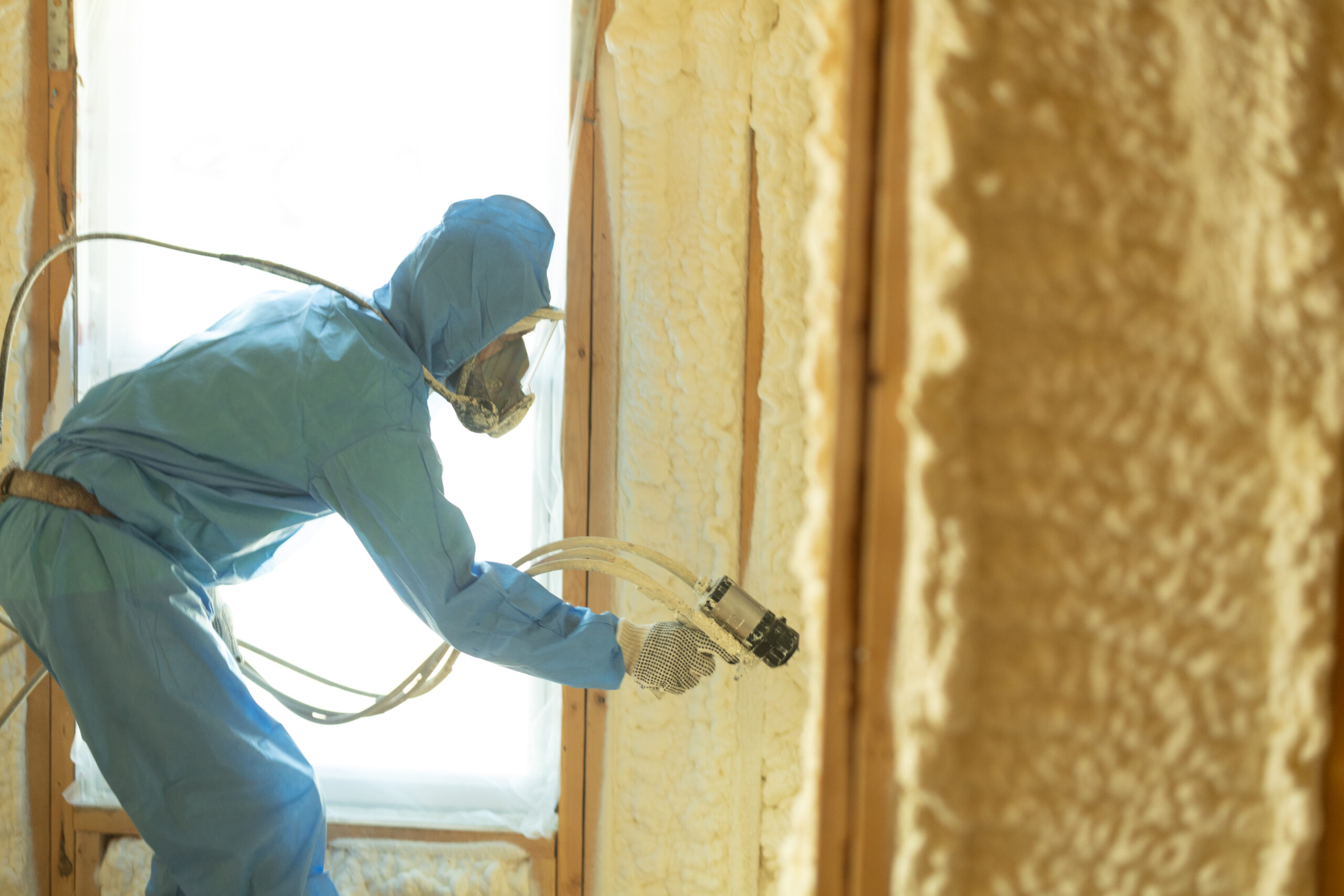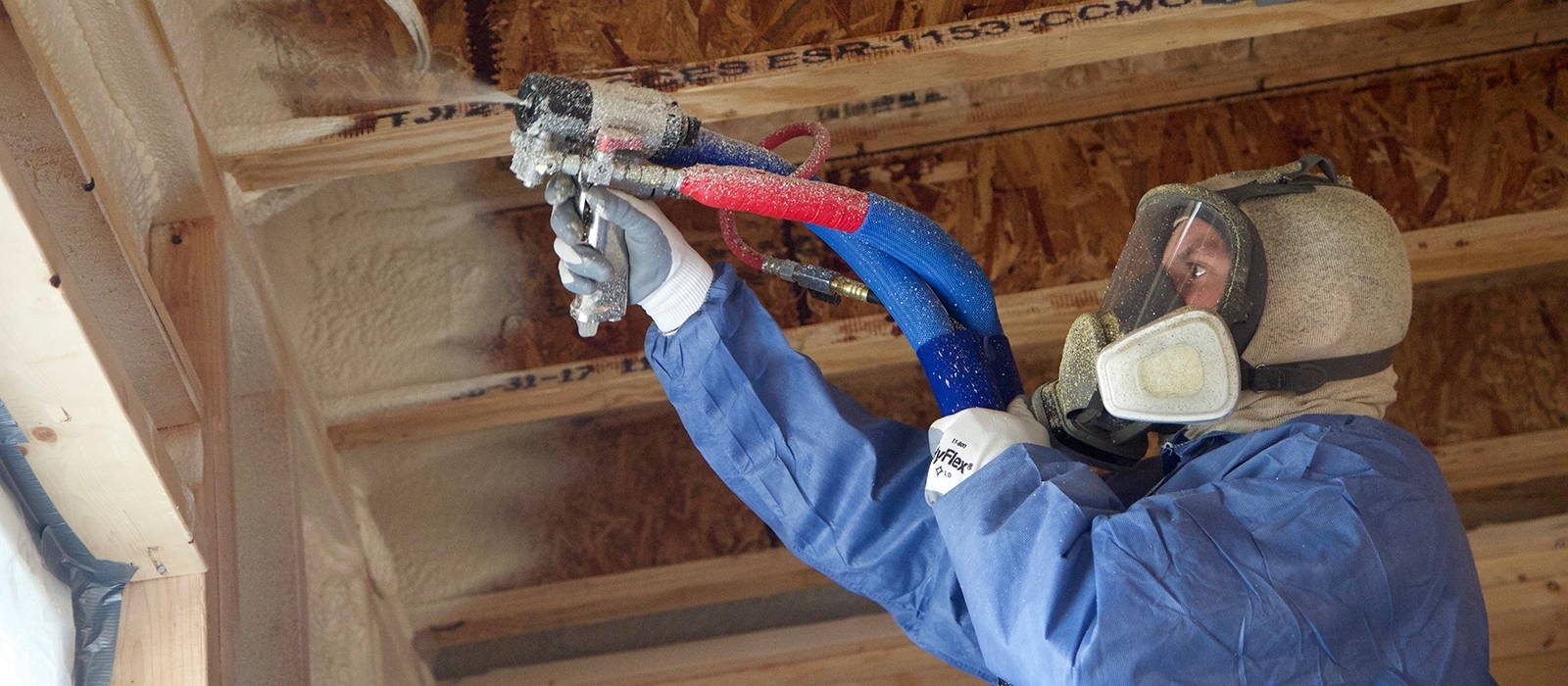Choosing the Right Sort Of Spray Foam for Your Insulation Requirements
Choosing the Right Sort Of Spray Foam for Your Insulation Requirements
Blog Article
Spray Foam: The Ultimate Option for Air Sealing and Insulation
Spray foam insulation has arised as a leading remedy for efficient air sealing and thermal insulation, providing a distinct mix of properties that establish it apart from standard techniques. Understanding the full range of its benefits, installation procedures, and comparisons with other insulation kinds is vital for making notified decisions.
What Is Spray Foam?
Spray foam is a functional insulation material that combines the concepts of air sealing and thermal resistance to enhance power effectiveness in structures. Made up mainly of polyurethane or various other similar compounds, spray foam is used as a liquid that increases upon contact with surface areas, producing a solid, constant layer of insulation. This distinct residential or commercial property permits it to fill up voids, fractures, and voids that standard insulation materials might overlook, giving an exceptional air seal.
There are 2 primary sorts of spray foam: open-cell and closed-cell. Open-cell spray foam is lighter and much more adaptable, providing superb noise absorption and a reduced R-value per inch - Spray Foam. On the other hand, closed-cell spray foam is denser, supplying a higher R-value, wetness resistance, and included structural stability to building components
The application procedure generally entails specialized devices, guaranteeing a smooth application that follows numerous substratums, including concrete, wood, and metal. This adaptability makes spray foam appropriate for both brand-new constructions and retrofitting existing structures. Its capability to develop an airtight barrier substantially adds to reducing energy usage and boosting interior air quality, thus making it a favored selection amongst contractors and house owners alike.
Benefits of Spray Foam Insulation
One of the most considerable advantages of spray foam insulation is its outstanding capacity to develop a continual air obstacle, which properly decreases power loss. Unlike typical insulation products, spray foam increases to load splits and voids, making sure that air leak is dramatically decreased. This characteristic not only boosts power performance however likewise results in reduce utility costs with time.
In addition, spray foam insulation gives remarkable thermal resistance, adding to a much more stable interior setting. Its high R-value per inch enables for effective insulation in confined rooms, making it suitable for attics, walls, and crawl rooms. In addition, the moisture-resistant properties of spray foam aid stop mold and mold growth, promoting much healthier living conditions.
An additional vital benefit of spray foam insulation is its sound-dampening high qualities (Spray Foam). It efficiently lowers noise transmission in between spaces, developing a quieter and much more comfy home atmosphere. The durability of spray foam additionally stands apart, as it does not droop or settle in time, maintaining its performance throughout its life expectancy
How Spray Foam Works
Comprehending how spray foam insulation works is important for valuing its performance in air sealing and thermal resistance. Spray foam insulation consists of two key components: isocyanate and polyol resin. When these parts are blended, they undertake a chemical reaction that triggers the product to expand quickly, creating a thick foam that loads cavities, cracks, and spaces.
As the foam broadens, it sticks to surface areas, creating an airtight seal that considerably minimizes air seepage. This particular makes spray foam insulation highly effective at avoiding drafts and wetness infiltration, which can cause power loss and damages over time. Furthermore, the closed-cell variation of spray foam uses remarkable thermal resistance as a result of its inflexible framework, properly decreasing warmth transfer.
The one-of-a-kind homes of spray foam enable it to satisfy irregular surfaces, guaranteeing extensive protection and a seamless barrier. Because of this, spray foam insulation not just improves energy effectiveness but also adds to boosted interior air high quality by decreasing the accumulation of toxins and allergens. Ultimately, understanding the technicians behind spray foam highlights its function as an exceptional choice for insulation and air securing in both business and this property applications.
Installment Process Overview

Prior to installment, the space needs to be appropriately cleaned and prepped, making sure that surface areas her latest blog are devoid of debris, dust, and wetness. This action is critical because contaminants can compromise bond and general performance. As soon as the location is prepared, the application entails blending both parts of the spray foam, which increases upon contact and loads voids effectively.
Educated specialists need to perform the installment, making use of customized tools to make sure consistent protection and ideal density. Safety safety measures, consisting of putting on safety gear and guaranteeing proper ventilation, are important during this procedure. After application, the foam commonly treatments swiftly, developing a solid obstacle that improves energy efficiency.
Contrasting Spray Foam to Standard Insulation
When examining insulation options, spray foam insulation stands out in contrast to standard materials such as fiberglass and cellulose. Among the main advantages of spray foam is its premium air securing capabilities. Unlike fiberglass and cellulose, which can permit air seepage, spray foam expands upon application, loading holes and spaces to develop a closed seal. This results in boosted energy performance, as less warmed or cooled down air escapes the home, bring about lower energy bills.
Additionally, spray foam gives a higher R-value per inch than typical insulation types, using even more reliable thermal resistance in a thinner profile. This characteristic is particularly useful precede with minimal dental caries depth. Furthermore, spray foam is resistant to wetness and mold and mildew growth, which can be a considerable interest in cellulose and fiberglass, especially in moist environments.
Nevertheless, spray foam insulation commonly brings a greater ahead of helpful hints time cost than its standard equivalents. Home owners must evaluate this preliminary financial investment versus long-term energy cost savings and efficiency advantages. Inevitably, while both insulation kinds offer their objective, spray foam arises as a more sophisticated option for modern-day insulation demands, specifically in regards to air securing and thermal performance.

Verdict
In recap, spray foam insulation stands for an extremely efficient service for achieving optimal air securing and thermal resistance. Its special homes, including moisture resistance and sound dampening, make it ideal for different applications in both new constructions and retrofitting projects (Spray Foam). Although the preliminary expenses might be higher contrasted to typical insulation products, the long-term advantages, such as substantial energy savings and improved interior air high quality, justify the financial investment and highlight its value in modern-day structure practices.
Spray foam insulation has actually emerged as a leading remedy for efficient air sealing and thermal insulation, supplying a distinct mix of residential properties that set it apart from typical approaches.Spray foam is a flexible insulation product that integrates the concepts of air sealing and thermal resistance to boost energy effectiveness in structures.When assessing insulation alternatives, spray foam insulation stands out in comparison to conventional products such as fiberglass and cellulose. Ultimately, while both insulation kinds offer their purpose, spray foam arises as an extra advanced option for modern-day insulation needs, especially in terms of air securing and thermal efficiency.
In summary, spray foam insulation stands for a highly effective option for attaining optimal air sealing and thermal resistance.
Report this page